Choosing bariatric surgery to lose weight is a major life decision for individuals who have struggled with obesity for an extended period and are now confronting health issues related to their weight. Dr. Santiago Gomez, a renowned bariatric surgeon in Medellín, Colombia, knows how important it is to carefully consider the differences between gastric sleeve and gastric bypass procedures.
With a gastric sleeve, part of the stomach is removed to make it smaller and limit food intake. Gastric bypass takes this a step further by also rerouting the intestines. This causes the body to absorb fewer calories and nutrients from food, which can lead to even greater weight loss.
Dr. Gomez believes the right choice depends on each patient’s unique health situation and goals. His mission is to provide clear guidance to help patients feel confident about this life-changing decision. By understanding the specifics of each surgery and how they align with your needs, you can take a well-informed first step on your personal path to a healthier weight.
What will you learn after reading this blog?
- Understanding the differences between gastric sleeve vs bypass is crucial for a tailored weight loss strategy.
- Sleeve gastrectomy offers stomach size reduction without the complexity of rerouting intestines.
- Gastric bypass combines stomach size reduction with malabsorption for comprehensive weight loss outcomes.
- The expertise of skilled bariatric surgeons, like Dr. Santiago Gomez, can provide personalized guidance in the choice between sleeve vs. bypass.
- Selecting the right weight loss surgery aligns with individual health goals and pre-existing conditions for optimal results.
Understanding Bariatric Surgery Options
Several surgical pathways are charted out for patients considering bariatric surgery, each with its method of aiding weight reduction. The types of weight loss surgeries are primarily categorized based on how they alter the digestive system to promote satiety and restrict calorie intake.
Weight loss surgery is a transformative step towards a healthier lifestyle, but as with any surgical procedure, it comes with its own set of potential complications and risks. Our goal is to shed light on these concerns, ensuring that individuals considering surgical interventions for weight loss are thoroughly informed about the risks of bariatric surgery. Recognizing the potential complications of weight loss surgery both during and after the operation is instrumental in preparing individuals for the journey they are about to embark upon.
Types of Weight Loss Surgeries
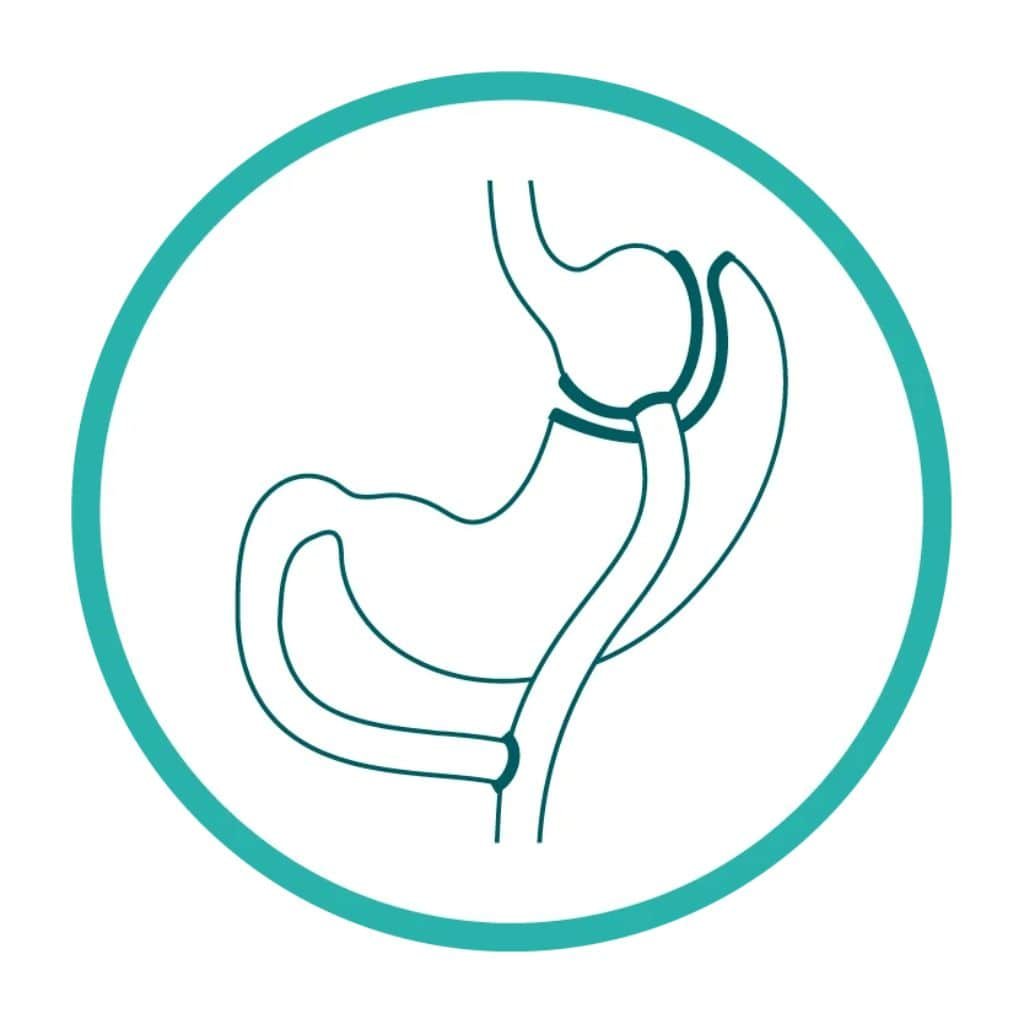
Sleeve Gastrectomy
This procedure involves removing a portion of the stomach, significantly reducing its size and limiting food intake.
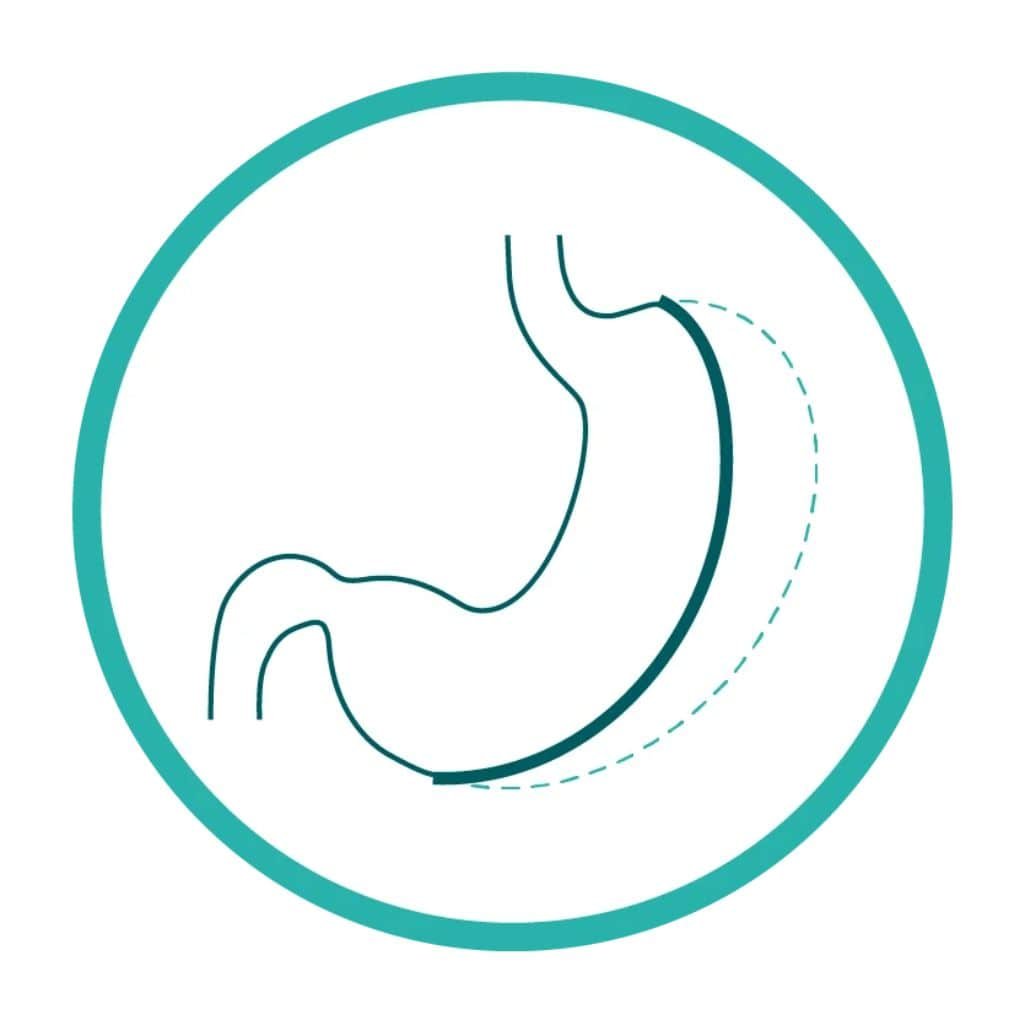
Gastric Bypass
Renowned for its effectiveness, this surgery creates a small stomach pouch and reroutes the intestines to decrease calorie absorption.
Why Choose Bariatric Surgery?
The query ‘why choose bariatric surgery?’ is a frequent one among individuals struggling with obesity. Beyond the immediate effect of weight loss, these surgeries can lead to long-term health benefits, including the remission of type 2 diabetes, improved cardiovascular health, and relief from depressive symptoms. Weight loss surgeries are not just about aesthetics; they are a definitive solutiorn for those desiring an improved quality of life influenced by better physicalhealth.
Considering Your Surgical Options
Pondering the bariatric surgery options is a step that demands thoughtful analysis of individual circumstances. Considering one’s medical history, weight loss goals, and lifestyle are pivotal in aligning with the appropriate surgical method. In making an educated decision towards a weight loss surgery, consulting with healthcare professionals, and understanding potential outcomes is paramount.
Schedule a virtual appointment with Dr. Santiago Gomez to find out which surgery is right for you, Click Here.
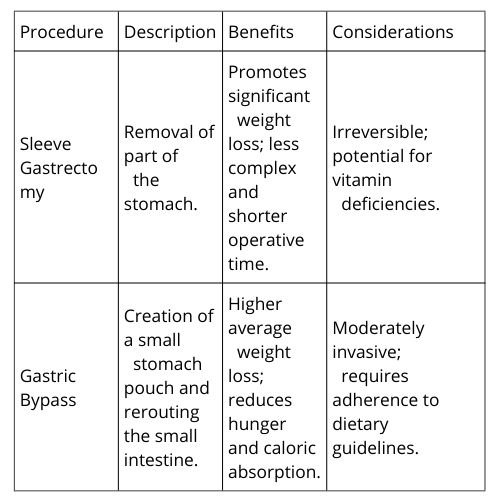
| Procedure | Description | Benefits | Considerations |
| Sleeve Gastrectomy | Removal of part of the stomach. | Promotes significant weight loss; less complex and shorter operative time. | Irreversible; potential for vitamin deficiencies. |
| Gastric Bypass | Creation of a small stomach pouch and rerouting the small intestine. | Higher average weight loss; reduces hunger and caloric absorption. |
Moderately invasive; requires adherence to dietary guidelines. |
Gastric Sleeve Surgery in Colombia
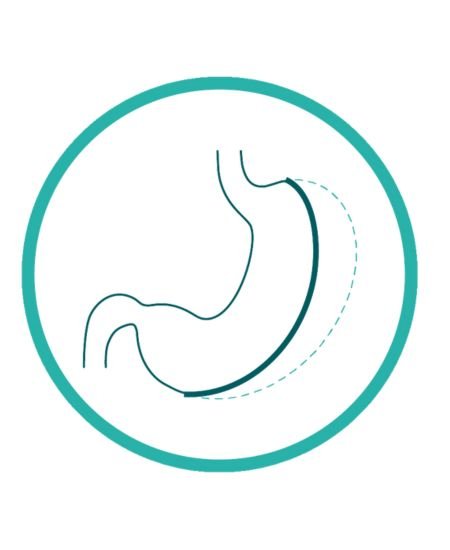
Gastric sleeve surgeque try, widely recognized in the medical community as sleeve gastrectomy, has risen to prominence as a highly effective weight loss surgery. This procedure does not simply serve as a tool for reducing stomach size; it’s a transformative step towards a healthier lifestyle. A deep understanding of the sleeve gastrectomy procedure, coupled with insights into recovery from sleeve gastrectomy, form the pillars of success for individuals pursuing weight loss with sleeve gastrectomy.
Sleeve Gastrectomy Procedure Explained
The sleeve gastrectomy procedure is marked by the strategic removal of approximately 80% of the stomach. What remains is a slender sleeve-like gastric tube, which significantly limits food intake and facilitates weight loss. We must emphasize the precision with which this surgery is conducted – it’s not merely about making the stomach smaller, it’s about reshaping the patient’s approach to food. By limiting ghrelin (the hunger hormone) production, the procedure further aids in reducing appetite, making it a dual-action solution to combat excess weight.
How do we do a gastric sleeve?
The laparoscopic technique in gastric sleeve surgery works by utilizing small incisions, a specialized camera, and precise surgical instruments to perform the procedure with minimal invasiveness. Here’s a detailed explanation of how the laparoscopic technique is employed in a gastric sleeve surgery:
Weight loss surgery is a transformative step towards a healthier lifestyle, but as with any surgical procedure, it comes with its own set of potential complications and risks. Our goal is to shed light on these concerns, ensuring that individuals considering surgical interventions for weight loss are thoroughly informed about the risks of bariatric surgery. Recognizing the potential complications of weight loss surgery both during and after the operation is instrumental in preparing individuals for the journey they are about to embark upon.
- Making small incisions (0.5-1 cm) in the abdomen.
- Inserting a laparoscope (thin, fiber-optic camera) for magnified visualization.
- Using specialized, long-handled instruments for precise manipulation of tissues.
- Performing the surgery through these small incisions, guided by the laparoscopic camera.
Compared to traditional open surgery, the laparoscopic approach enables surgeons to perform gastric sleeve surgery and other procedures with enhanced precision, safety, and patient outcomes.
Do you want to see how we make a gastric sleeve? Video Here.
Recovery from Sleeve Gastrectomy
The path to recovery from sleeve gastrectomy demands commitment to dietary changes and lifestyle adjustments. Initial weeks post-surgery are characterized by a structured diet, transitioning from liquids to pureed foods, and finally to solid foods. Patients must adhere to nutritional guidelines and engage in regular physical activity to maximize weight loss with sleeve gastrectomy. The recovery timeline can vary, but with steadfast adherence, many see substantial weight reduction and health improvements in the months following the operation.
Sleeve Gastrectomy Recovery Phases
|
Phase |
Dietary Stage |
Duration |
Example Foods |
|
1 |
Liquid Diet |
1-2 weeks |
Broth, sugar-free Jell-O, clear juices |
|
2 |
Pureed Foods |
2-4 weeks |
Pureed chicken, mashed potatoes, soup |
|
3 |
Soft Foods |
4-8 weeks |
Scrambled eggs, cottage cheese, soft vegetables |
|
4 |
Solid Foods |
8 weeks and beyond |
Lean meats, fruits, vegetables |
Gastric Bypass Procedure in Colombia
A gastric bypass is a type of bariatric surgery that involves creating a small pouch at the top of the stomach and rerouting the small intestine to this new pouch. This procedure is designed to promote weight loss by:
Restricting food intake: By creating a small stomach pouch, the amount of food that can be consumed at one time is significantly reduced, leading to a feeling of fullness more quickly.
Reducing calorie and nutrient absorption: By bypassing a portion of the small intestine, the body absorbs fewer calories and nutrients from the food consumed, contributing to weight loss.
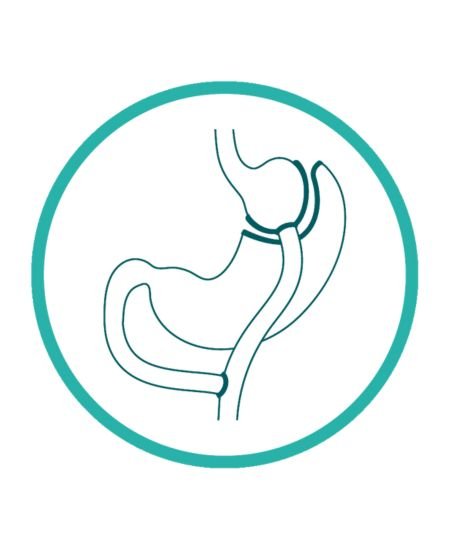
The gastric bypass procedure is typically performed in two main steps:
Después de someterse al “slim gástrico”, es esencial un seguimiento médico riguroso para asegurar una recuperación óptima y el éxito a largo plazo del procedimiento. Este seguimiento incluye:
- Creating a new, smaller stomach pouch: The surgeon uses surgical staples or a plastic band to create a small pouch at the top of the stomach, which will serve as the new, smaller stomach. This pouch is about the size of an egg and can hold approximately one ounce of food.
- Rerouting the small intestine: The surgeon then connects a portion of the small intestine directly to the new stomach pouch, allowing food to bypass the rest of the stomach and a significant portion of the small intestine. This rerouting alters the normal digestive process.
By combining these two techniques—restricting food intake and reducing calorie absorption—the gastric bypass procedure can lead to significant and sustained weight loss. However, it is essential to recognize that the surgery is not a standalone solution; it requires a lifelong commitment to dietary changes, regular exercise, and follow-up care to ensure the best possible outcomes and long-term success.
Five Benefits of Gastric Bypass Procedure
- Significant and sustained weight loss: Gastric bypass surgery can lead to substantial weight loss, with patients losing an average of 60-80% of their excess body weight within the first 18-24 months following the procedure.
- Improvement or remission of obesity-related health conditions: Weight loss achieved through gastric bypass surgery can significantly improve or even resolve various health problems associated with obesity, such as: Type 2 diabetes, High blood pressure, High cholesterol, Sleep apnea, Joint pain and mobility issues
- Enhanced quality of life: As patients lose weight and experience improvements in their health, they often report a better overall quality of life, including increased energy levels, improved self-esteem, and greater participation in social and physical activities.
- Longer life expectancy: By achieving significant weight loss and improving obesity-related health conditions, patients who undergo gastric bypass surgery may have a longer life expectancy compared to individuals with severe obesity who do not have the surgery.
- Psychological benefits: Successful weight loss after gastric bypass surgery can lead to improved self-image, increased confidence, and a reduction in symptoms of depression and anxiety that may be associated with obesity.
Comparative Analysis: Sleeve vs. Bypass
Surgical Technique and Stomach Size Reduction
The surgical technique used in gastric sleeve surgery involves removing approximately 80% of the stomach, effectively creating a tube or «sleeve»-like structure. This stomach size reduction restricts food intake and prompts weight loss. In contrast, gastric bypass surgery goes a step further by not only reducing the size of the stomach but also rerouting the intestines. This alters the body’s digestive process and typically results in a more substantial longer-term weight reduction.
Rerouting Intestines and Malabsorption
With gastric bypass, the rerouting of the intestines introduces an element of malabsorption, which is less prominent in the gastric sleeve procedure. By bypassing a portion of the small intestine, the body absorbs fewer calories and nutrients from the food consumed, which can enhance weight loss but also requires ongoing nutritional monitoring to prevent deficiencies.
Weight Loss Outcomes
Discussing weight loss outcomes requires a nuanced approach. The long-term weight loss success of gastric bypass often edges out that of the gastric sleeve due to both the reduction in stomach size and the malabsorption effect. However, both procedures have proven to be effective tools in the fight against obesity and its related comorbidities. It’s important to weigh the pros and cons, including potential risks and lifestyle changes that accompany each type of surgery, to determine which is the most aligned with one’s weight loss journey.
The Role of Stomach Size and Hormones in Weight Loss
The role of hunger hormones in weight loss is particularly significant in the context of gastric sleeve surgery. By removing a substantial portion of the stomach, including the area responsible for producing hunger hormones like ghrelin, this procedure can effectively suppress appetite and increase feelings of fullness. The reduction in ghrelin production helps patients control their food intake and achieve sustainable weight loss.
How Stomach Size Influences Appetite
The impact of stomach size on appetite is significant; a smaller stomach capacity tends to lead to a reduced appetite. Both gastric sleeve and gastric bypass surgeries target this principle by decreasing stomach size and therefore restricting the amount of food needed to feel satiated. Yet, the question remains – how does this physiologically affect our perception of hunger and our eating habits?
| Procedure | Stomach Size Reduction | Effect on Appetite |
|
Gastric Sleeve |
Approximately 80% |
Less space for food, quicker satiety |
|
Gastric Bypass |
Creates small stomach pouch |
Minimal space for food, very quick satiety and possible malabsorption |
The Impact of Ghrelin on Hunger
Ghrelin, dubbed the ‘hunger hormone’, plays a pivotal role in ghrelin in hunger regulation. This hormone, produced in the stomach, signals the brain to induce the feeling of hunger. Weight loss surgeries, by modifying the stomach’s size, can alter ghrelin levels, thus affecting appetite and energy balance.
- Gastric Sleeve Surgery: Reduces the part of the stomach that produces ghrelin.
- Gastric Bypass Surgery: As the stomach is bypassed, ghrelin levels typically decrease.
Potential Complications and Risks
Weight loss surgery is a transformative step towards a healthier lifestyle, but as with any surgical procedure, it comes with its own set of potential complications and risks. Our goal is to shed light on these concerns, ensuring that individuals considering surgical interventions for weight loss are thoroughly informed about the risks of bariatric surgery. Recognizing the potential complications of weight loss surgery both during and after the operation is instrumental in preparing individuals for the journey they are about to embark upon.
Risk of Complications During and After Surgery
Complications during and after surgery are potential risks that must be taken into consideration. These can range from minor issues, such as nausea and infection, to more severe problems, including blood clots, leakage at the surgical site, and difficulties resulting from anesthesia. Immediate postoperative risks accentuate the importance of a skilled surgical team and comprehensive post-operative care. We encourage patients to discuss these risks in detail with their healthcare providers to gain a clearer understanding of what the surgery entails.
Long-term Effects of Bariatric Surgery
The journey doesn’t end with post-operative recovery—there are long-term effects of bariatric surgery that patients need to be aware of. Nutritional deficiencies, for instance, can occur due to the malabsorptive aspect of certain weight loss surgeries, calling for lifelong supplementation and monitoring. Additionally, changes in gastrointestinal physiology may lead to conditions such as hypoglycemia, ulcers or gallstones. The potential for significant weight loss must be weighed against these long-term considerations as patients forge their paths towards sustained health.
Dietary Guidelines Post-Surgery
Following weight loss surgery, a meticulously planned post-operative diet is paramount for optimal healing and long-term success. This applies to both sleeve gastrectomy and gastric bypass procedures. Due to the significant alterations to your digestive system, a specialized diet is essential to ensure you meet your new nutritional needs post-surgery. This section will delve into the key dietary protocols designed to facilitate a smooth recovery and sustainable weight management.
Diet After Sleeve Gastrectomy
Following weight loss surgery, a meticulously planned post-operative diet is paramount for optimal healing and long-term success. This applies to both sleeve gastrectomy and gastric bypass procedures. Due to the significant alterations to your digestive system, a specialized diet is essential to ensure you meet your new nutritional needs post-surgery. This section will delve into the key dietary protocols designed to facilitate a smooth recovery and sustainable weight management.
Diet After Gastric Bypass
Similarly, the diet after gastric bypass begins with liquids, progressing gradually to solid foods. The rerouted digestive system necessitates focusing on what you eat, not just portion size. Protein intake, vitamins, and mineral supplementation become critical due to potential absorption issues. Careful portion control and avoiding foods that trigger discomfort are key to a smooth transition.
Remember, your post-op dietary journey is unique. Work closely with your surgeon and a registered dietitian to personalize your plan based on your body’s response during recovery. By adhering to post-surgical dietary guidelines, you’ll establish the foundation for a healthier, more vibrant lifestyle.
Dietary Guidelines Post-Surgery
As bariatric healthcare experts, we understand that success after weight loss surgery depends on long-term commitment. While initial weight loss can be significant, sustained lifestyle changes are vital for lasting results.
To achieve long-term success patients must focus on:
- Behavior Modification: We help patients develop healthier relationships with food for lasting change, not temporary diets.
- Lifestyle Changes: Personalized fitness plans and ongoing nutritional counseling support active living and conscious eating.
- Ongoing Medical Support: Regular follow-ups help patients monitor progress, overcome challenges, and maintain their weight loss.
- A Comprehensive, Multidisciplinary Approach: Dietitians, psychologists, and other specialists work together to provide holistic support for long-term success.
- Remember, weight loss maintenance is an active journey. We're here to guide you every step of the way!.
- Elemento de lista
Bariatric surgery outcomes aren’t solely a reflection of pounds shed but the culmination of learned behaviors, community support, and inner strength. We take pride in walking alongside each individual, ensuring that their stride towards success is confident and, most importantly, enduring.
What Makes a Candidate Best Suited for Sleeve vs Bypass?
Choosing between gastric sleeve and gastric bypass requires careful consideration. The best approach depends on factors like your BMI, obesity-related health conditions, and lifestyle preferences.
Generally, consider this:
- Sleeve Gastrectomy: May be preferable for those with a slightly lower BMI and less severe obesity-related health concerns.
- Gastric Bypass: Often better suited for individuals with a higher BMI and more complex conditions like Type 2 diabetes. Bypass offers a stronger malabsorptive effect, which can be beneficial in these cases.
Crucially, always consult your bariatric surgeon. They’ll thoroughly assess your individual circumstances to recommend the most suitable procedure for you.Below is a comparison table that outlines key factors to consider for candidates exploring these bariatric surgery options:
| Criteria | Gastric Sleeve | Gastric Bypass |
| Body Mass Index (BMI) | Suitable for lower BMI | Suitable for higher BMI |
|
Obesity-Related Health Conditions |
Less severe comorbidities | More serious conditions like Type 2 diabetes |
| Surgical Risk Tolerance | Less complex surgery, potentially lower risk |
More complex surgery, potential for higher risk |
| Weight Loss Expectations | Significant weight loss expected | May offer more immediate weight loss results |
| Nutritional and Lifestyle Changes | Requires adherence to dietary guidelines | More extensive dietary and supplementation needs post-surgery |
| Patient Preferences | May be preferred by those seeking less invasive options | Preferred by those comfortable with more invasive surgery |
By assessing these critical factors, we can guide patients in determining their suitability for sleeve gastrectomy or suitability for gastric bypass. It’s important for every candidate to consult with a healthcare provider to discuss their particular situation comprehensively, ensuring the choice of surgery is meticulously tailored to yield the best possible outcomes for their health and lifestyle.
Best Bariatric Surgeon in Colombia.
Bariatric surgery in Colombia, as presented by Dr. Santiago Gomez Correa, offers a transformative solution for individuals battling obesity, promising not only weight loss but also an improved quality of life. Dr. Gomez Correa, a seasoned laparoscopic and bariatric surgeon, specializes in minimally invasive procedures such as Gastric Bypass and Gastric Sleeve. His expertise is backed by extensive training in laparoscopic surgery from CES University of Medellin, along with international certifications from the United States and France. This ensures that patients receive care that meets global standards, all within the scenic locale of Medellin, Colombia.
Dr. Gomez Correa’s approach is patient-centric, emphasizing safety, comfort, and effectiveness throughout the surgical journey. His bilingual team is adept at addressing the needs of international patients, making the process seamless for those seeking treatment from abroad. The choice of bariatric surgery is a critical decision for many, aiming not just at weight loss but at curbing the complications associated with obesity, such as hypertension, diabetes, and sleep apnea. The surgeries promise not only to reduce these risks but also to enhance the overall life span and quality of life for patients.
Bariatric surgery in Colombia under Dr. Gomez Correa’s guidance is characterized by the use of laparoscopy, a technique that ensures minimal invasiveness, quicker recovery, and less discomfort post-operation. This method, coupled with Dr. Gomez Correa’s expertise and the comprehensive care offered at his clinic, positions Colombia as a prime destination for those considering bariatric surgery. The clinic’s dedication to providing a definitive solution to obesity, supported by a combination of professional excellence and advanced surgical techniques, marks a beacon of hope for individuals seeking to reclaim their health and vitality.
Conclusion
Understanding the key differences between gastric sleeve and gastric bypass is essential for making an informed decision about weight loss surgery. These differences include surgical technique, stomach size reduction, malabsorption effects, and expected weight loss. Strict post-surgical dietary adherence is crucial for both procedures.
When considering either surgery, carefully evaluate your health profile, desired outcomes, and potential costs (including insurance coverage). Ultimately, the best choice is the one you make in close consultation with your medical team. With the knowledge you’ve gained, you’re empowered to choose the path that aligns with your individual needs and goals for a healthier, more fulfilling life.
FAQ
What is the difference between gastric sleeve and gastric bypass?
Gastric sleeve surgery involves reducing the size of the stomach, while gastric bypass surgery creates a smaller stomach pouch and reroutes the intestines.
How do gastric sleeve and gastric bypass surgeries aid in weight loss?
Gastric sleeve surgery restricts food intake by reducing the size of the stomach, while gastric bypass surgery combines stomach size reduction with rerouting of the intestines to bypass a portion of the digestive system.
What are the benefits of sleeve gastrectomy?
Sleeve gastrectomy offers substantial weight loss, improvement in obesity-related health conditions, and enhanced overall quality of life.
What are the benefits of gastric bypass?
Gastric bypass surgery leads to significant weight loss, improvement in obesity-related health conditions, and long-term weight maintenance.
What are the risks of sleeve gastrectomy?
Risks of sleeve gastrectomy include surgical complications and the need for lifestyle changes.
What are the risks of gastric bypass?
Risks of gastric bypass surgery include surgical complications and changes in nutrient absorption.
What is the recovery process like after sleeve gastrectomy?
The recovery process after sleeve gastrectomy involves adherence to a specific diet and lifestyle changes to ensure successful outcomes.
What is the recovery process like after gastric bypass?
The recovery process after gastric bypass involves adherence to a specific diet and lifestyle changes to promote healing and weight loss.
What is the cost of sleeve gastrectomy?
The cost of sleeve gastrectomy includes pre-operative evaluations, surgical fees, hospital stays, and post-operative follow-up care. The total cost can vary depending on individual factors and insurance coverage.
Who is a suitable candidate for sleeve gastrectomy?
The suitability for sleeve gastrectomy is based on factors such as body mass index (BMI), obesity-related health conditions, past medical history, and patient preferences.
Who is a suitable candidate for gastric bypass?
The suitability for gastric bypass is based on factors such as body mass index (BMI), obesity-related health conditions, past medical history, and patient preferences.
What are the long-term effects of bariatric surgery?
The long-term effects of bariatric surgery include sustained weight loss, improvement in obesity-related health conditions, and enhanced overall quality of life. Ongoing medical support and lifestyle changes are crucial for maintaining long-term success.
What are the potential complications and risks of weight loss surgery?
Potential complications of weight loss surgery include surgical complications, nutritional deficiencies, and the need for lifelong dietary and lifestyle changes. Understanding these risks is important for making an informed decision.
What are the dietary guidelines after sleeve gastrectomy?
Post-surgery dietary guidelines after sleeve gastrectomy include consuming nutrient-dense foods, portion control, hydration, and the potential need for supplementation.
What are the dietary guidelines after gastric bypass?
Post-surgery dietary guidelines after gastric bypass include consuming nutrient-dense foods, portion control, hydration, and the potential need for supplementation.
How do gastric sleeve and gastric bypass surgeries compare in terms of weight loss outcomes?
Gastric sleeve and gastric bypass surgeries both yield significant weight loss outcomes, but the mechanisms and extent of weight loss may vary between the two procedures.
What factors should be considered when choosing between gastric sleeve and gastric bypass?
Factors to consider when choosing between gastric sleeve and gastric bypass include surgical technique, stomach size reduction, malabsorption, weight loss outcomes, and individual health needs and preferences.


